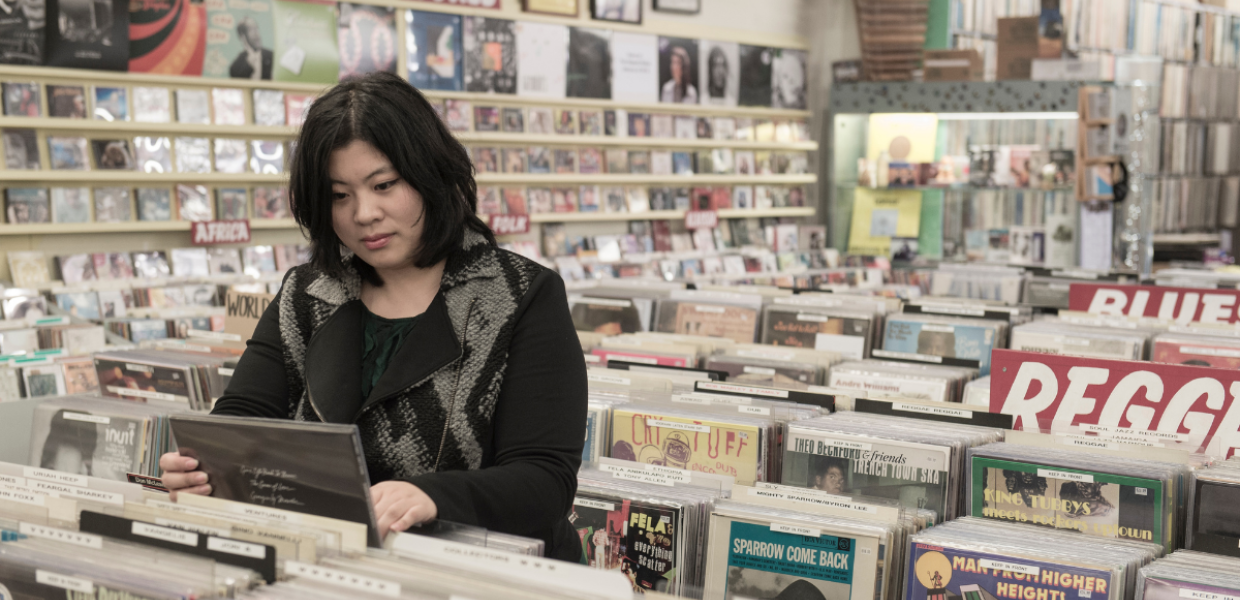Tell us about your current role.
I am an Assistant Professor in the Multimedia Computing Group of Delft University of Technology in The Netherlands. Next to this, I also am active as a concert pianist, most notably in the Magma Duo, together with Emmy Storms (violin).
What was your career path to your current role?
While in high school, I had a very broad range of interests, but above all, I wanted to learn more about music. Upon graduating, I planned to go to the conservatoire, and I started investigating possibilities for doing a second major next to music studies. At an open day at the Delft University of Technology I accidentally ran into a demo of the Computer Science major, which featured a student project on making an interface more user-friendly. This demo made me realise that computer science could lead to societally useful applications, and this seemed a major I could possibly do in parallel with studies at the conservatoire.
During my studies, I noticed that when I did repertoire research online, it still was quite hard to find the resources and recordings I needed. This got me interested in research on music organisation, search engines and recommender systems. I was awarded a Google European Doctoral Fellowship, which enabled me to do a PhD and research this further, and also got me into various internships at the company, where I worked as a software engineer on Google’s music services. When finishing my PhD, I debated pursuing an industry career in Silicon Valley, or staying in academia. However, the Magma Duo was then selected for a national career development trajectory in The Netherlands, and a staff position opened in Delft. So it seems the fates wished for me to stay close to home, and this is how I got into my current role.
What are you working on right now?
I work on technologies that enable humans to broaden their horizons when confronted with large information collections. I am interested in questions of validity: whether we can truly measure and optimise for what we intend. In my research, I work on methods that can give us more systematic insight into this, and show us where we still can improve.
These interests all have their roots in my music experiences. But beyond researching them in the context of music collections, I am currently working on broader societal applications, including collection-building in public libraries; data-driven candidate screening in job applications; and trustworthy machine learning procedures in the Fintech sector. In all these cases, responsible and trustworthy AI needs to very consciously take human interpretation into account; this is an area where I grew strong sensitivity while working on music.
What do you think is the biggest opportunity AI presents for the cultural heritage sector?
AI can be a catalyst to get more of our cultural heritage out to broader audiences. It can help us in more comprehensively navigating and accessing collections, and making connections and discoveries we otherwise would not have found.
What is the biggest challenge?
For a long time in the performing arts I have seen the sector being reluctant about AI and digital innovation. During the COVID-19 crisis, we have been forced into a much more digital way of working and communicating, which has raised awareness that digital innovation may be beneficial and needed. At the same time, because of the damage caused by the crisis, the sector struggles more than ever to keep itself afloat. So now we are in the strange situation that conceptually, there really is a lot of opportunity, but practically, it is hard to lift off digital innovation and AI-readiness within the sector in a structural and strategic way.
In five years time, what do you hope that AI has brought to cultural heritage?
In five years time, I hope that we will have created sufficient momentum to have AI enable both broader and more profound connections with cultural heritage resources. I hope that AI can help more of us realise that these resources are not just dusty objects from the past to put on pedestals and watch from a distance, but that they still can really speak to us and shape our perspectives today. Furthermore, cultural resources have intricacies that today still are really hard to do right with AI (like allowing for different parallel human interpretations and perspectives, and not falling into clearly separable categories). These are exactly the intricacies we need to understand better for broader, responsible AI applications. So, I also hope that in five years from now, the AI field will have become more nuanced, thanks to insights we gained in the cultural sector.
A study from 2018 suggests that just 12% of machine learning researchers are women. What do you think can be done to encourage more women into the field?
First of all, I would emphasise what commonly is suggested: foster mentoring, and make the women in the field visible. Highlight their career trajectories and personal stories and experiences, so they can be role models to new generations. Besides this, also keep highlighting and celebrating their technical contributions and their impact.
Next to this, a lot of the current AI and machine learning narratives are about ‘being the strongest’, getting the most accurate models out of the biggest data. To me, this definitely had a bit of an alpha male vibe, that I haven’t always been so comfortable with. When comparing a 90%-accurate model with a 99%-accurate model, the 1% errors made by the 99%-accurate model may very well turn out more catastrophic or less explainable than the 10% errors made by the 90%-accurate model. I’m currently seeing the field develop to indeed become more nuanced about this, and generally be more considerate about impact in envisioned applications; this development is making me feel more welcome in the field, and I could imagine this will hold for more women colleagues.



